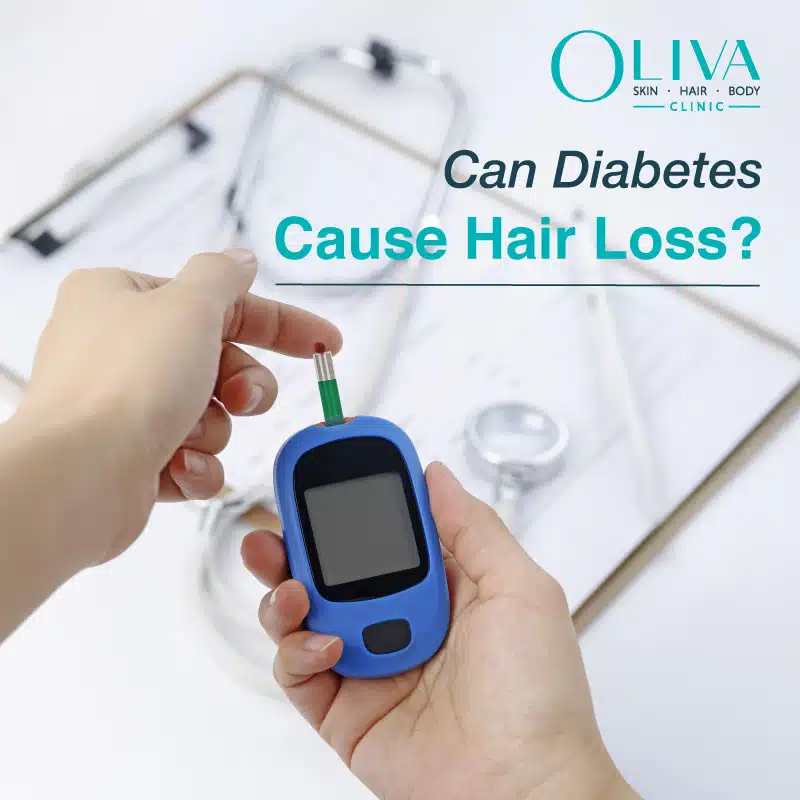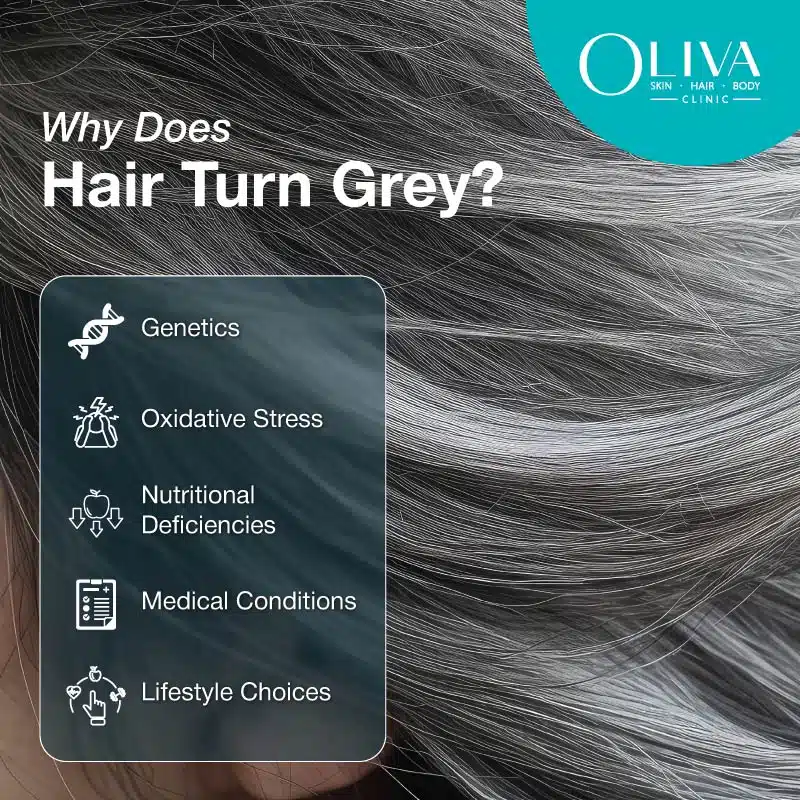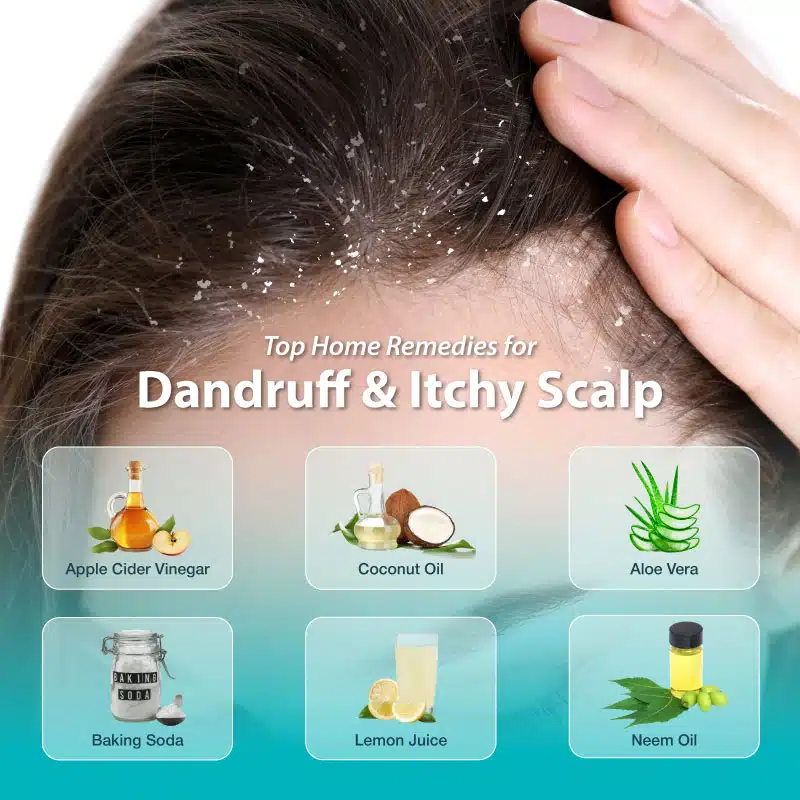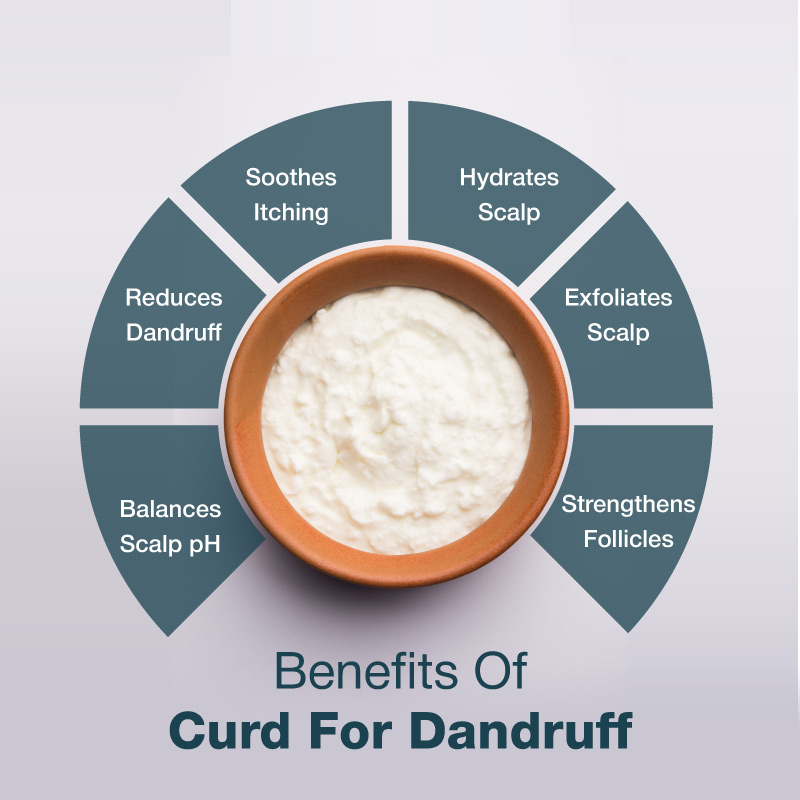Can Diabetes Cause Hair Loss? Causes, Signs & Best Treatments
You may have been recently diagnosed with diabetes or perhaps have been living with it for the past few years. Have you observed clumps of hair sticking to your brush? It could be because diabetes is causing your hair to fall out. Diabetes can cause a lot of health issues, and hair loss can be one of them. If you are wondering if there is any link between diabetes and hair loss, you should read the article to the end. In this comprehensive guide, we will answer the most commonly asked question, “Can diabetes cause hair loss?” Additionally, we will provide you with effective tips to prevent hair loss due to diabetes and inform you about the dermatologist-recommended treatments for it.
In This Article

Can Diabetes Cause Hair Loss?
Yes, diabetes can affect your hair growth cycle, causing you to lose more hair than you should. It can lead to hair thinning, patterned hair loss or patchy hair loss. Here are the multiple ways of how diabetes can cause hair loss:
-
Poor Blood Circulation To The Scalp:
Uncontrolled diabetes or excess glucose levels can damage your blood vessels and hinder the supply of oxygen and other essential nutrients to your scalp [1] and hair follicles. This, ultimately, influences your hair growth cycle.
-
Weakened Immune System:
Additionally, type 1 diabetes can weaken your immune system, causing alopecia areata [2]. This autoimmune condition attacks your hair follicles, which results in patches of hair loss on the scalp and other areas of your body.
-
Hormonal Imbalance:
Not only that, diabetes can also disrupt your hormonal levels, affecting your natural hair growth cycle [3] and leading to hair thinning and hair loss. That answers your questions: can diabetes cause hair loss, and does diabetes cause hair thinning?
-
Increased Stress Levels:
People with diabetes often experience a lot of stress that increases the cortisol levels in the body. This causes their hair follicles to go into the shedding phase, resulting in hair thinning.
-
Poor Nutrition:
Individuals with diabetes are more likely to have nutritional deficiencies [4] like vitamins B, D, and biotin and zinc. This can result in hair loss.
What Are The Signs of Diabetes-Related Hair Loss?
Here are the signs and symptoms you should look out for in hair loss related to diabetes .
- If you notice significant hair thinning or reduced hair density.
- If you notice excessive hair shedding when brushing or washing your hair.
- If you notice your hair is growing slowly after it falls out.
Watch for these signs. If you notice any symptoms, don’t panic; visit a dermatologist as soon as you can. They will analyse your scalp and hair to determine if your hair loss is caused by diabetes.
Who Is At Higher Risk?
Now that you know diabetes and hair loss are often linked, it is essential to learn who is susceptible to the condition.
- Individuals with type 1 diabetes are prone to developing an autoimmune disorder called alopecia areata.
- Individuals with type 2 diabetes [5] who have high insulin resistance are likely to experience patterned hair loss due to the hormonal disorders.
How To Prevent Hair Loss Due To Diabetes?
Here are some effective tips you can follow to slow down or stop the progression of diabetes-related hair loss:
- Manage your blood sugar levels [6], as this contributes to a healthy hair growth cycle and helps reduce hair loss.
- Inculcate regular physical activity into your daily routine for improved blood circulation.
- Practice stress management techniques to enhance your hair health and reduce hair loss.
- Consume a healthy and balanced diet that includes vitamins A, C, D, and E, and other essential nutrients like iron, zinc, biotin and omega-3 fatty acids.
When To Visit A Dermatologist?
You have been following the tips mentioned above. Also, you may have been managing your blood sugar levels. However, you are still noticing a lot of hair fall. Consult a dermatologist immediately, who will diagnose the exact cause of your hair loss. Sometimes, there could be a different reason contributing to hair loss.
Dermatologist-Recommended Treatments For Hair Loss From Diabetes
Addressing your hair loss in the early stages can help preserve your hair and slow down the progression. When you visit a dermatologist for a consultation, they will analyse your scalp and hair health, determine the underlying cause, type and severity of hair loss, and customise a treatment plan tailored to your unique needs. They recommend any or a combination of the following treatments to address your concern.
-
Oral/Topical Medications:
Your dermatologist may prescribe oral/topical medications as a treatment option for your hair loss.
-
PRP Treatment:
Platelet-rich plasma (PRP) is an advanced hair regrowth treatment your doctor may recommend. This non-surgical treatment utilises your own blood sample to extract concentrated platelets and inject them into the hair loss or hair thinning areas of your scalp. These platelets contain growth factors that stimulate dormant hair follicles and promote natural hair regrowth. This treatment is absolutely safe and delivers long-lasting results.
-
Hair Threads:
Dermatologists may recommend hair threads treatment if you are experiencing early to moderate stages of hair loss. This non-surgical treatment uses bio-absorbable PDO threads that are inserted into your scalp. These PDO threads stimulate and strengthen weaker hair follicles, improve blood circulation to your scalp and nourish it. They promote natural hair regrowth and enhance your hair health. The best part is that these PDO threads are biodegradable and 100% safe.
-
QR678 Treatment:
You need QR678 Neo treatment if you are experiencing hair thinning, patterned baldness, chronic telogen effluvium, or hair loss due to nutritional deficiencies or hormonal imbalance. In this non-surgical method, your dermatologist will inject biomimetic peptide solution into the affected areas of your scalp. This solution is rich in growth factors, which activate inactive hair follicles and prolong their hair growth cycle, resulting in thicker and denser hair.
-
Hair Transplant:
Your dermatologist may suggest that you undergo a hair transplant procedure if you are experiencing severe hair thinning or bald patches on your scalp. They use the advanced DHI technique to extract and implant hair follicles that are resistant to DHT. This surgical procedure is the best hair restoration method that gives natural hair growth results.
Why Choose Oliva Clinic For Hair Loss Treatment?
If you are suffering from diabetic-related hair loss, patterned baldness, or any other kind of hair loss, you should definitely visit Oliva Clinics. Oliva is the most preferred choice for many. Here is why:
1. Dermatologist-Led Expertise: At Oliva, every hair loss treatment is performed by qualified and experienced dermatologists who specialise in hair and scalp health to ensure medical accuracy and safety.
2. Advanced US FDA-Approved Technology: At Oliva, we use FDA-approved technology and equipment for all our hair treatments to deliver visible and long-lasting results.
3. V Discover Protocol: We offer an exclusive 5-step consultation process that helps our experts diagnose the root cause of your hair loss and provide a holistic solution.
4. Customised Treatment Plans: At Oliva, there is no one-size-fits-all approach. We offer personalised treatment plans based on whether your hair loss is hormonal, nutritional, or stress-related. They are tailored to your hair and scalp type, severity of hair loss, and your hair growth goals.
5. Transparent Pricing: We ensure clear communication of the treatment cost without any hidden charges to ensure transparency.
6. Comprehensive Support: We offer holistic care and support, including pre-, during and post-treatment, to ensure a comfortable experience throughout your hair restoration journey.
7. Client Satisfaction: Oliva has garnered the trust of eight lakh clients across the nation with a client satisfaction rate of 98%.
Takeaway
Hair loss can be a symptom of diabetes. High blood sugar levels affect your blood circulation, immune system and hormonal balance, all of which contribute to your hair growth. Noticing the signs early and seeking professional guidance can help you slow down and stop the progression of hair loss. For an accurate diagnosis of diabetic-related hair loss, visit an expert dermatologist at your nearest Oliva Clinics. They will determine the root cause and customise a treatment plan tailored to your unique needs.
Frequently Asked Questions On Can Diabetes Cause Hair Loss
Diabetes can affect your hair growth and cause hair loss. Individuals may experience hair thinning, androgenic alopecia, telogen effluvium, or alopecia areata due to poor blood circulation and hormonal imbalance.
No. In addition to hair loss, diabetes can affect your hair texture, slow down your regrowth, and reduce your overall hair density.
Yes. Maintaining your blood sugar levels can help improve circulation to your scalp and hair follicles, reducing diabetes-related hair fall.
Yes, you can regrow the hair that you lost due to diabetes. However, it is possible only if your blood sugar is well controlled and follicles are still active.
Yes, diabetes can increase oxidative stress and nutrient deficiency that may lead to premature greying of hair.
Yes, both type 1 and type 2 diabetes can cause hair loss due to hormonal disorders and a weakened immune system.
Yes. Insulin resistance in prediabetes can impact the blood circulation and nutrient supply to your scalp and hair follicles, causing hair loss.
Yes, high blood sugar can cause your hair strands to become weak and reduce moisture. This leads to dryness and breakage.








